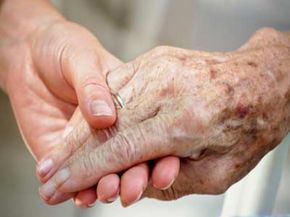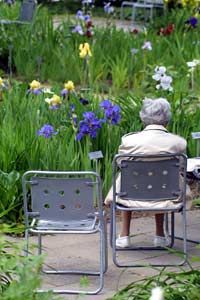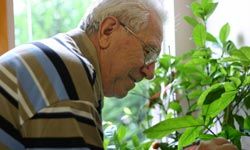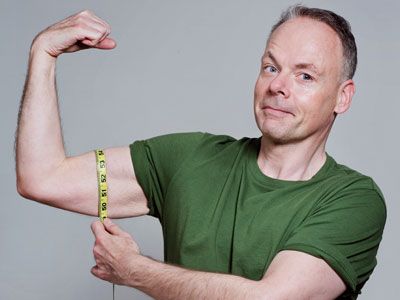The biological process of aging has an intriguing symmetrical quality. As babies, we depend on caregivers to feed us, transport us and soothe our discomforts. While growing up, we break away from our guardians and form an external support network. When we cross the threshold of old age, our bodies begin to break down, and we gradually fall back into the care of others.
Advertisement
Along with the freedom to drive, bathe and eat on our own time, our freedom and ability to socialize diminish as well. Certain social networks will naturally disintegrate after retirement or moving into a long-term care facility. From there, the amount of interaction with other people depends largely on health and mobility. The people who surround our deathbeds will number precious few from the thousands of associations forged over the years.
The psychological and social effect of aging tells us a lot about how a culture values the elderly and the internal processes that take place as we approach death. How does our impact on society and vice versa shift as we age? Are older people valued for their wisdom and pluck or dismissed as useless geezers? Social gerontologists seek to answers such questions.
Social gerontology took root in the late 1940s after World War II. At that time, society in the United States and across the globe had changed irrevocably, and sociologists assumed the task of sorting out the differences. Scholars had long examined the biological way that we die, but the Social Science Research Council of 1948 concluded that academia had paid little attention to the interaction between biology and society [source: Achenbaum and Bengston]. In response to that call to action, the first formalized psychosocial (focusing on thoughts and behavior) theory of aging was published around a decade later.
Social scientists Elaine Cumming and William Henry outlined the disengagement theory of aging in their 1961 book, "Growing Old." They based their theory on data from the Kansas City Study of Adult Life, in which researchers from the University of Chicago followed several hundred adults from middle to old age. What Cumming and Henry surmised is that growing old isn't a cheerful time in which cardigan-clad grandmas bake cookies for their adoring offspring and grandchildren. In old age, we end up inevitably alone.
Advertisement



